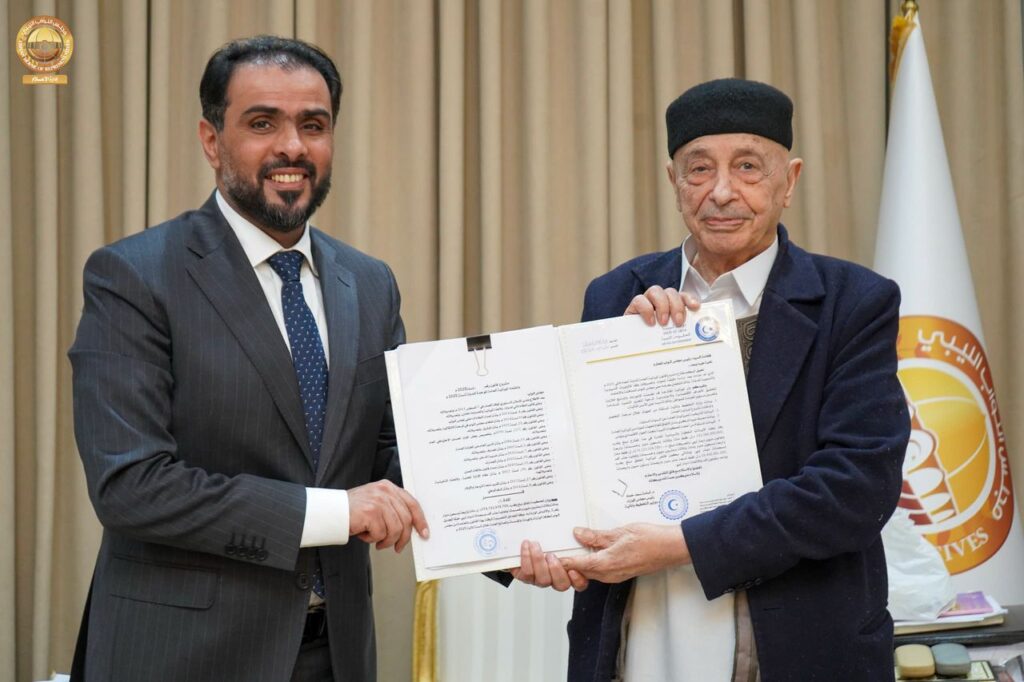Al-Qubba–The Speaker of the House of Representative Agila Saleh received on Monday the draft law of a unified general budget for the year 2025 at his office in Al-Qubba city.
If approved by the Parliament, this budget could contribute to drastically lower dual public spending which reached unprecedented levels in 2024 and solve differences among political rivals in Libya.
The budget draft law was handed to the Speaker by the head of Parliament-appointed government Mr. Osama Hamad, and it is expected to be debated in the House of Representatives in a session that will be attended by officials from the Central Bank of Libya (CBL).
The proposed unified general budget for this year amounts to over 174 billion Libyan Dinars. It is intended to cover public expenditures in all sectors of the Libyan state without exception, according to a statement by the Parliament.
As such, this budget “reinforces the principle of transparency in public spending and its rationalization, and allows the Central Bank of Libya to not spend outside the framework of financial legislation,” said the statement.
On 6 April, the CBL issued an official statement in which it announced a 13.3% devaluation of the dinar against special drawing rights (SDRs), increasing the value of the dollar by 5.5677 dinars. The CBL described the move as “necessary in light of the absence of any hope or prospect for unifying dual spending between the two governments”.
It said, “the volume of dual public spending during 2024 reached 224 billion LYD, including 123 billion LYD in expenditures by the Government of National Unity, 42 billion LYD for oil swaps, and approximately 59 billion LYD in spending by the Libyan Government, compared to oil and tax revenues amounting to 136 billion LYD. This level of spending generated a demand for foreign currency of $36 billion, contributing to the distortion and widening of the gap between the supply and demand for foreign currencies, thus preventing the CBL from achieving its objectives of maintaining exchange rate stability and strengthening the value of the Libyan dinar”.
The CBL also said “the expansion of dual public spending over the past years and during 2024 led to a significant increase in the money supply, reaching 178.1 billion LYD. This is expected to result in several negative economic effects and pose challenges to the CBL considering the limited tools available to contain it”.
Hamad’s government said in a statement that the proposed budget includes the necessary measures and programs to achieve the desired economic and social goals, promote sustainable development, and improve the standard of living for citizens throughout Libya.
It said in drafting the budget it relied on a number of principles which include: Data from the Ministry of Planning and Finance of the Libyan government, obtained from relevant authorities during the preparation and discussion phase; historical data on general budgets for previous years; data from the Central Bank of Libya on public spending by entities funded by the general budget; and data obtained from members of the Libyan government on the Economic Dialogue Committee in Tunisia.
